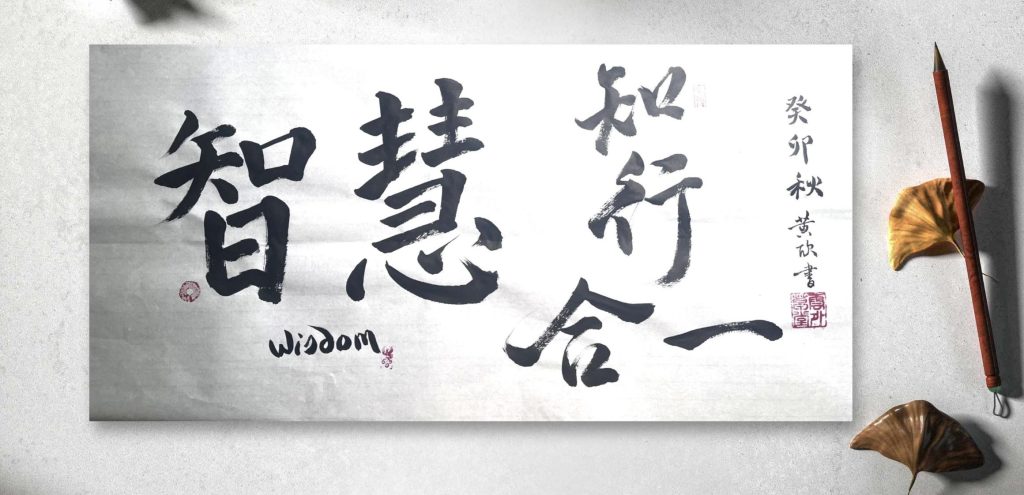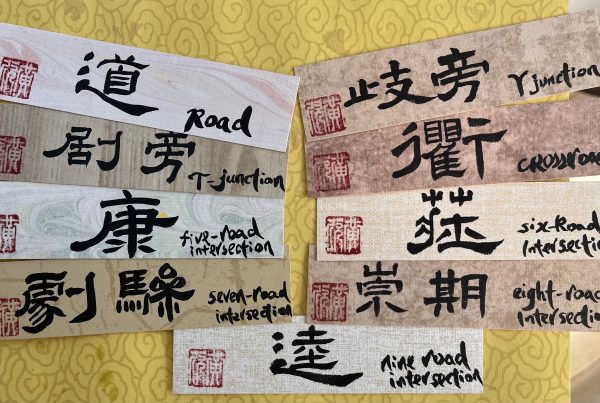In a world that values success, wealth, intelligence, looks, and status more than wisdom, it’s time we unravel the mystery of what wisdom truly means. Wisdom is not just the pursuit of knowledge – it is the ability to recognise patterns within that knowledge. Wisdom is not just about acquiring insight – it is about taking the right actions. In this blog post, I will dive deeper into the concept of wisdom starting with a quote by Taleb. We will then explore the Chinese characters for wisdom: 智慧, and use them to explain Wang Yangming’s philosophy theory 知行合一 which means “integration of knowledge and action”.
Many of us have experienced the value card exercise as part of team building. In this activity, we choose the top 5 values that matter most to us out of a wide range of options. Interestingly, wisdom often emerges as one of those top 5 values. But how well do we truly understand the meaning of wisdom, and do we genuinely appreciate its worth compared to wealth, intelligence or status?
Taleb’s quote from his book “The Bed of Procrustes” struck me deeply this week: “They may envy your success, wealth, intelligence, looks, and status, but wisdom is a rarity.” This made me ponder the true essence of wisdom and its significance.
Wisdom is a concept that is difficult to define. In Chinese, wisdom is described using two characters: 智慧. 智 means to be able to tell the difference between things, while 慧 means to see the larger pattern. Together, they mean that wisdom is the ability to accumulate knowledge via having insight into the universe through pattern recognition – the ability to connect seemingly unrelated pieces of information and to predict outcomes with high accuracy.
Wisdom goes beyond mere knowledge and foresight. While understanding and predicting outcomes are important, the true essence of wisdom lies in taking action to derive benefits. A person may possess great intelligence, yet still fail to follow through and make poor decisions.
Wang Yangming’s philosophy theory 知行合一, or “integration of knowledge and action”, takes wisdom one step further. According to Wang, wisdom is not only about understanding and acting on that understanding; it is also about integrating the two. While knowledge can be self-evident, putting it into practice requires effort, and this requires wisdom. Therefore, knowing and doing need to be integrated.
Knowledge without action is useless, and action without knowledge can be dangerous. It is important to strive towards finding a balance between these two aspects to ensure that we are not just acquiring knowledge for the sake of it, but rather to be able to use it to make a positive impact in the world.

The term for wisdom, 智慧, is pronounced as “zhì huì”. You pronounce “zhì” like “zhee”, with a falling tone, and “huì” as “hway”, with a fall-rise tone.
The phrase 知行合一, translating to “integration of knowledge and action”, is pronounced as “zhī xíng hé yī”. “Zhī” is pronounced like “zhee” with a level high tone, “xíng” as “hsing” with a rising tone, “hé” sounds like “huh” with a level tone, and “yī” is pronounced like “ee” with a high level tone.
Please note that tones are crucial in Chinese pronunciation, as different tones can change the meaning of a word.
In the following video, I’ll be demonstrating how to write the characters for wisdom, 智慧 (zhì huì), and the phrase for the integration of knowledge and action, 知行合一 (zhī xíng hé yī).
To practice alongside the video:
- You will need a brush and a piece of calligraphy paper.
- Start the video and carefully observe the stroke order and techniques used to write each character.
- Pause the video on each character and attempt to duplicate it on your paper. Remember to maintain a steady hand and calm mind.
- While you are writing, reflect on its meaning: ponder the insightfulness and pattern recognition embedded in 智慧, and the unity of understanding and action in 知行合一.
This practice is not merely about penmanship but also a meditative process that encourages you to introspect and connect with the profound wisdom these terms represent.
